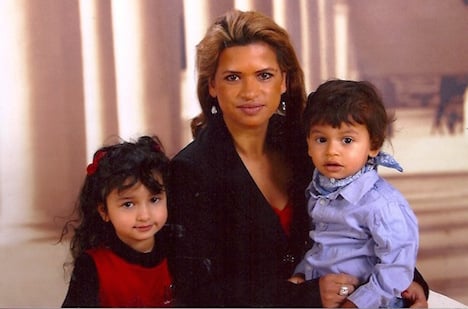She spoke to The Local about her passion for working with children and what she loves about life in the capital.
What was your inspiration for setting up a bilingual Montessori Kindergarten?
I studied child psychology in London and I wanted to become a child psychotherapist – but I was told that I needed practical experience with children, which I didn’t have then. Someone recommended the Montessori method – so I studied at the Montessori Institute in Hampstead – and I fell in love with it. It really showed me how you can help children become independent and self-sufficient at a very early age. Children have such enormous potential and Maria Montessori (who founded the method) saw that children have an innate desire to learn and explore and that they are naturally creative and active – they never get tired of learning new things.
At Children's Academy we provide them with a learning environment to support the phases they are going through. When they are very small, 2 years old, they experience the ‘language explosion’. We support this with singing and learning rhymes and they master it with very little effort. They are like big sponges that absorb everything around them!
What do you enjoy most about your job?
Children relate to me very easily – I can get down on their level but at the same time I’m a figure of authority. I just have genuine love for children and they sense that. Everything I do with children is spontaneous and I really enjoy that. When you read them a story and are able to hold their attention, and they sit and listen with awe – that’s a wonderful thing. Singing and dancing also comes naturally to me! I studied tap dancing and drama in New York.
What do you love most about life in Vienna?
I came here to be closer to my family and I really love that it’s very clean and safe. I do miss living in an English-speaking country but my job means that I can speak English every day – we teach in German and English and my team is international. I don’t feel Austrian, even though my parents are Austrian, because I grew up abroad. I feel like I’m a bit of everything, without being attached to one country. But Vienna is becoming more international and open – I feel so comfortable here now. I try to bring the traditions of America and England alive for the children – so we celebrate events such as Halloween, which the children love.
Does it give children a real advantage to learn English before they start school?
Yes, definitely – back to the sponge idea – they just absorb it. We’re not teaching English from a book, it’s through everyday instructions and activities. They learn new vocabulary every day, naturally, just by living it and they process that and pick up the natural rhythm of the language. Parents are often shocked when their children start speaking perfect English. If a child starts with us aged two, and is with us for four years, I can guarantee that they leave speaking German and English fluently.
What are the challenges of your job?
Just maintaining the energy you need to keep the children busy and coming up with new activities that they find absorbing and engaging. They start at 8am and finish at 4pm. I really try and find things for each child, that captures his or her imagination. We make them healthy, fresh food every day. You do have to be patient and stay calm – and that’s something you learn over time. But I’ve been teaching children for 20 years now. We have two groups, a nursery group of 1.5 to 3.5 year olds and a preschool group for 3.5 to six year olds, with a maximum of 14 in each group. It’s very international and we prepare the older children for starting school with our special Preschool Plus Program. But I’m very lucky to have a team who are passionate about this work, it’s not just a job for them, it’s their calling.
Children’s Academy is based in Vienna’s 3rd district, not far from Stadtpark. Click here to find out more from their website.



 Please whitelist us to continue reading.
Please whitelist us to continue reading.